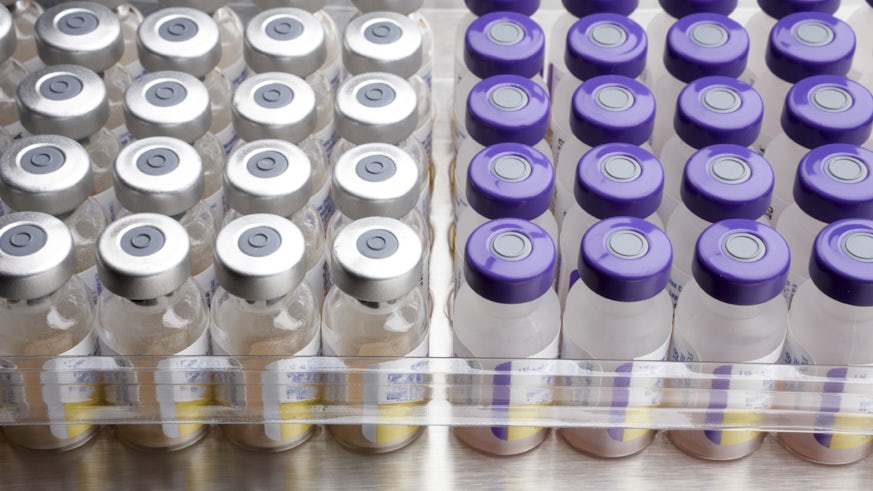Type 1 diabetes vaccine possible “within a generation”
12 March 2015

A vaccine for Type 1 diabetes could be developed "within a generation", say scientists who today announce over £4.4 million of new investment for research that will help make this a reality.
The research will be led by scientists from Cardiff University,
King's College London and Imperial College London could produce the first
working vaccines within the next 10 years.
As well as helping to delay or even prevent Type 1 diabetes in those at high
risk, this will also be an important step towards a cure for the condition.
It's likely that the vaccine will also work in harmony with other treatments
that reduce damage to insulin producing cells in the pancreas caused by the
immune system.
A fully effective Type 1 vaccine would represent a significant leap forward in
diabetes research. The research is being launched at Diabetes UK's annual
Professional Conference at London's ExCeL centre. In the first of four new
studies, Professor Mark Peakman at King's College London will lead the UK's
first ever trial of a prototype vaccine in children and teenagers living with
or at high risk of Type 1 diabetes.
At the same time, Professor Colin Dayan from Cardiff's School of Medicine will
develop a UK-wide network to enable more Type 1 'immuno-therapy' trials to take
place in UK hospitals – and to train the young doctors and researchers who will
lead them.
In addition, Professor Desmond Johnston of Imperial College London will
continue work to identify people newly diagnosed with Type 1 diabetes so that
more people with the condition can be offered the important opportunity to take
part in clinical trials.
The money will also fund work by Dr Tim Tree, also at King's College London,
who will set up a UK-wide network of specialist laboratories to study the
impact of immuno-therapy trials, investigating exactly how different treatments
work to control the immune attack that causes Type 1 diabetes and working out
if it is possible to predict who will benefit most from each treatment.
Professor Dayan said: "This funding has already led to a bold new collaboration
between UK diabetes scientists and will provide an immense boost for this field
as we work towards new clinical trials and a step change in our ability to halt
the loss of insulin in Type 1 diabetes.
"Within a year or two we will see many more children and adults taking part in
this research. Within four years we expect to see results from studies of more
than six potential treatments and within ten years we hope to see the first
vaccine therapies delivered to patients in the clinic."
Dr Alasdair Rankin, Diabetes UK's Director of Research, said: "This research, which has been made possible thanks to funding from Tesco and additional support from JDRF, is hugely exciting because it has the potential to transform the lives of hundreds of thousands of people living with Type 1 diabetes, as well as leading us towards a longed-for cure.
"Today, Type 1 diabetes is an unavoidable condition with a huge impact on the lives of more than 300,000 people in the UK. Managing diabetes is a daily struggle and too many people develop devastating health complications or die before their time. These studies will take us a long way towards changing that – bringing us closer than ever to preventing and ultimately curing the condition.
"None of this will be
easy or happen overnight. The first vaccines will probably help people to delay
the onset of Type 1 diabetes rather than preventing it entirely. But even this
would help to reduce the risk of serious complications, such as stroke,
blindness and heart attacks. In the longer term, a fully effective vaccine
would represent a huge medical breakthrough and could transform the lives of
people with Type 1 diabetes."
The work is funded by Diabetes UK with support from Tesco (over £3.3 million)
and co-funding from JDRF (over £1 million).